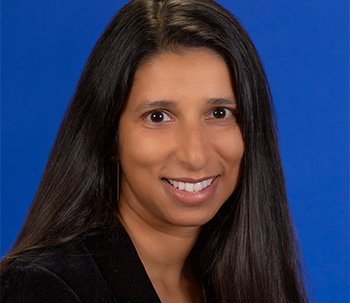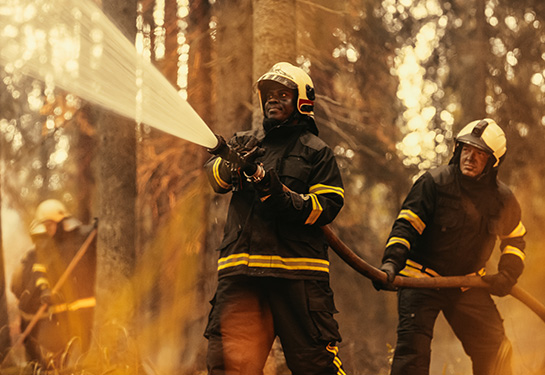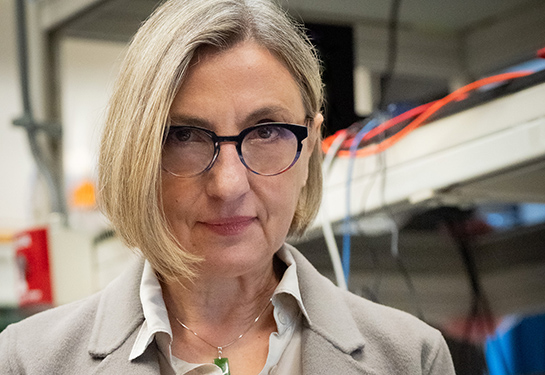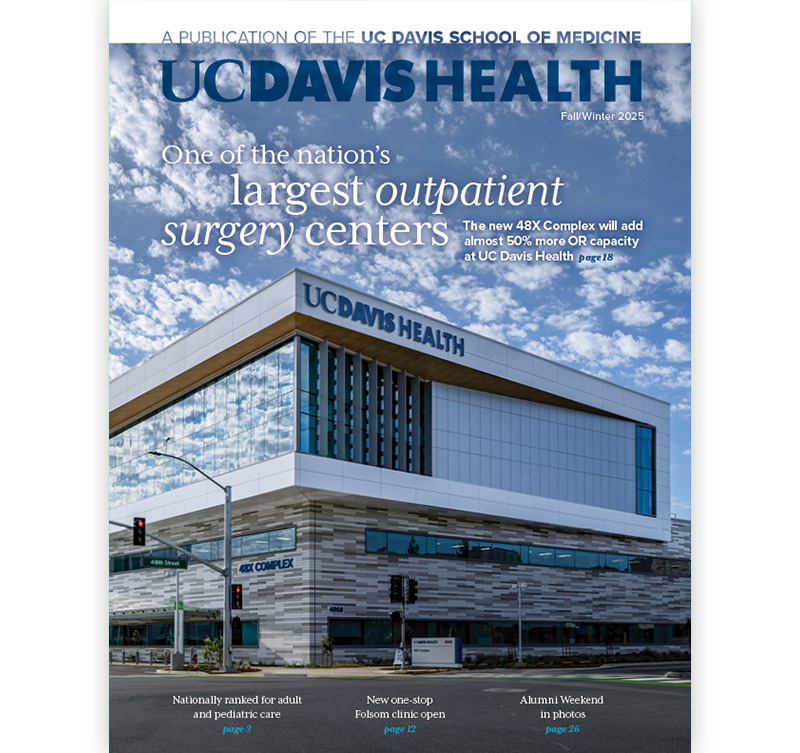Cancer center researcher awarded grant to study lethal cancers in firefighters
$1.9 million California climate action grant will fund study of carcinogens in smoke and how to prevent cancer risks
UC Davis Comprehensive Cancer Center researcher Shehnaz K. Hussain has received a $1.9 million California climate action grant to lead a study into the cancer risks facing firefighters as they battle climate-driven wildfires.
The grant is funded through a partnership between the University of California and the state of California, which awarded over $80 million in research grants to help put solutions in place that directly address state climate priorities. A total of four UC Davis climate action grants were awarded.
“With these investments, California is harnessing the ingenuity of our world-renowned universities and people to deliver climate action across our state,” said Governor Gavin Newsom. “California is leading the charge in tapping our natural resources to protect our people, our communities, and our planet.”
Pinpointing the danger
Hussain’s research, “Exposure Assessment, Health Monitoring, and Cancer Control in Wildland Firefighters” will examine the main carcinogens and cancer risk factors for firefighters as the number of wildfires escalates with climate change.

“California’s firefighters are a climate-vulnerable group due to their heavy burden of occupational exposures related to the increased frequency and scale of wildland fires. The fires are also burning into urban areas where there are many more chemicals and other potential carcinogens that threaten the health of firefighters,” said Hussain, who is also a professor of Public Health Sciences at UC Davis.
Cancer is the leading cause of death among firefighters.
Hussain said the research will identify areas where equipment, technology, protocols, education, programs, and policy can be developed or amended to reduce exposures to carcinogens, mitigate cancer risks, and improve early detection of cancer in California’s firefighters.
One aim of this research is to capture and test carcinogenic chemicals and other compounds found in wildfire emissions. The team will also study a large group of firefighters to identify biomarkers and occupational and behavioral cancer risk factors that could be reduced in the future. Another objective is to produce stories about California firefighters dealing with cancer. Researchers plan to evaluate the ability of this peer-to-peer storytelling to enhance best practices for cancer prevention in firefighters.
Hussain will lead a team of biochemical, engineering, microbiology, environmental and occupational scientists on the research initiative. The team will include co-lead Derek Urwin, assistant adjunct professor of chemistry and biochemistry at UCLA and a career firefighter. Other members of the research team include UC Davis colleagues Sheri Belafsky, Cristina Davis, Janine LaSalle, Irva Hertz-Picciotto and Thomas Young.
Fighting climate change through science
The California Climate Action Seed Grants and Matching Grants will fund 38 projects that collectively involve more than 130 community, industry, tribal, and public agencies, as well as 12 University of California locations, 11 California State University campuses and two private universities. Seed grants were awarded to 34 teams totaling $56.2 million. Four teams received matching grants totaling $26.9 million to support larger projects that could leverage additional funding from non-state sources. The $83.l million total is part of $185 million allocated by the state for UC climate initiatives advancing progress toward California’s climate goals.
“As the state’s preeminent research institution, the University of California is proud to partner with the state to pursue our shared climate goals,” said UC President Michael V. Drake, who is also a physician. “The innovations catalyzed by the climate action awards will make all of our communities safer, more sustainable, and more resilient. I am grateful to the state Legislature and Gov. Newsom for providing funding to support this critical research on climate change in California.”
UC Davis Comprehensive Cancer Center
UC Davis Comprehensive Cancer Center is the only National Cancer Institute-designated center serving the Central Valley and inland Northern California, a region of more than 6 million people. Its specialists provide compassionate, comprehensive care for more than 100,000 adults and children every year and access to more than 200 active clinical trials at any given time. Its innovative research program engages more than 240 scientists at UC Davis who work collaboratively to advance discovery of new tools to diagnose and treat cancer. Patients have access to leading-edge care, including immunotherapy and other targeted treatments. Its Office of Community Outreach and Engagement addresses disparities in cancer outcomes across diverse populations, and the cancer center provides comprehensive education and workforce development programs for the next generation of clinicians and scientists. For more information, visit cancer.ucdavis.edu.






